I am trying to write the unit test case for the private route we created, using @azure/msal-react
below is the code for the private route
import React from 'react';
import { Route, Redirect } from 'react-router-dom';
import {
AuthenticatedTemplate,
UnauthenticatedTemplate,
} from '@azure/msal-react';
export const PrivateRoute = (props) => {
const {
component: Component,
...restProps
} = props;
if (!Component) return null;
return (
<Route
exact
{...restProps}
render={(routeRenderProps) => (
<>
<AuthenticatedTemplate>
<Component
{...routeRenderProps}
{...restProps}
/>
</AuthenticatedTemplate>
<UnauthenticatedTemplate>
<Redirect
to={{
pathname: '/auth/signin',
state: { from: routeRenderProps.location },
}}
/>
</UnauthenticatedTemplate>
</>
)}
/>
);
};
below is the unit test case I wrote using react testing library
import React from 'react';
import { render, screen } from '@testing-library/react';
import { MemoryRouter } from 'react-router-dom';
import { MsalAuthenticationTemplate } from '@azure/msal-react';
import { PrivateRoute } from '../privateRoute';
describe('PrivateRoute', () => {
test('renders the component when the user is authenticated', () => {
const Component = () => <div>My Component</div>;
render(
<MemoryRouter initialEntries={['/']}>
<MsalAuthenticationTemplate>
<PrivateRoute
path="/"
component={Component}
/>
</MsalAuthenticationTemplate>
</MemoryRouter>,
);
const componentElement = screen.getByText('My Component');
expect(componentElement).toBeInTheDocument();
});
});
but this test case doesn't work, as it was not able to find the component.
pls refer to the attached image,
Could please help me to resolve this issue?
another test case I tried like this below, here I am setting an authentication status by passing a mockClient to the msal provider
import React from 'react';
import { render, screen } from '@testing-library/react';
import { MemoryRouter } from 'react-router-dom';
import { MsalProvider } from '@azure/msal-react';
import { PrivateRoute } from '../privateRoute';
describe('PrivateRoute', () => {
test('renders the component when the user is authenticated', () => {
const Component = () => <div>My Component</div>;
// Create an instance of MsalProvider with a mocked instance
const mockClient = {
getAllAccounts: jest.fn(() => [{ name: 'Test User' }]),
};
render(
<MsalProvider instance={mockClient}>
<MemoryRouter initialEntries={['/']}>
<PrivateRoute path="/" component={Component} />
</MemoryRouter>
</MsalProvider>,
);
const componentElement = screen.getByText('My Component');
expect(componentElement).toBeInTheDocument();
});
});
but it shows the below error message

